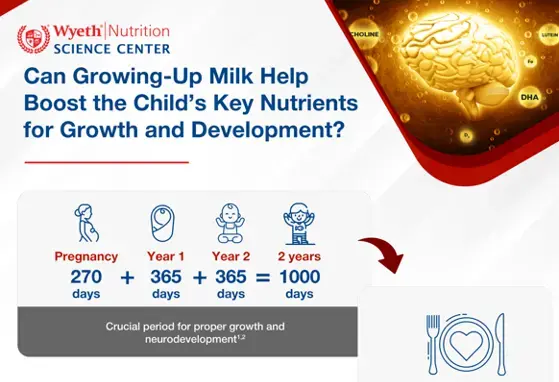Summary of German practical recommendations for women before and during pregnancy

- Diet and lifestyle before and during pregnancy influence pregnancy outcome, offspring development, as well as the short- and long-term health of both mother and offspring
- The German expert group, the Healthy Start – Young Family Network, has advanced the recommendations on nutrition in pregnancy, covering topics including body weight gain, nutritional requirements and diet variations
These practical recommendations of the Germany-wide Healthy Start - Young Family Network are intended to assist all professional groups that counsel women and couples wishing to have children and during pregnancy with uniform, scientifically-based and practical information.
Summary of key recommendations
Body weight
- Maintaining a normal body weight is desirable even before pregnancy
- For women with normal body weight,
- An appropriate weight gain in pregnancy is between ~10 and 16 kg
- For overweight and obese women,
- A lower weight gain in pregnancy is desirable
- For underweight women,
- Sufficient weight gain during pregnancy should be ensured
- Sufficient weight gain during pregnancy should be ensured
Nutrition
- Diet should be balanced and varied
- Food groups should be weighted differently in the balanced diet,
- Abundant amount of calorie-free beverages and plant-based food (vegetables, fruits, pulses, wholegrain products) should be consumed
- Moderate amount of animal-based foods (milk, dairy products, low-fat meat products, oily sea fish and eggs) should be consumed
- Sparing consumption of sweets, sugar-containing beverages and snack, fats with high level of saturated fatty acids (especially animal fats) and oil is suggested
- Plant oils should be the preferred sources of fat
Vegetarian and vegan diet
- Ovo-lacto vegetarianism
- A balanced vegetarian diet with milk, dairy products and eggs can provide most nutrients needed even during pregnancy
- Specific counselling is recommended
- Vegan
- Supply of important nutrients must be examined by a physician
- Individual counselling should be given
- Apart from iodine and folic acid, additional micronutrient supplementation (vitamin B12 in particular) is needed to prevent nutrient deficiency
Supplementation
- Folic acid
- Apart from a balanced diet, women planning for pregnancy must take 400 mcg of folic acid everyday
- Supplementation must start at least 4 weeks before conception and continue until the end of the 1st trimester
- Women beginning supplementation at less than 4 weeks before conception should use products with higher dose of folic acid
- Iodine
- Apart from a balanced diet, pregnant women must supplement 100 (up to 150) mcg of iodine everyday
- Women with thyroid disorder must consult their healthcare professionals before starting supplementations
- Others
- Iron supplementation on top of a balanced diet should only begin after medically diagnosed deficiency
- Pregnant women who do not eat oily sea fish regularly are suggested to take DHA supplements
Protection against food-borne illnesses
- Raw, animal-based foods must be avoided
- Follow recommendations to avoid listeriosis and toxoplasmosis (i.e. choice, storage and preparation of foods)
- Only eat eggs with both the yolk and white firm from being cooked
Alcohol
- Alcohol must be avoided for women planning to get pregnant or pregnant women
Smoking
- Couples/women should not smoke if planning a pregnancy
- Pregnant women must avoid:
- Smoking
- Staying in space where people are smoking or have smoked
Caffeinated beverages
- Only moderate amount of caffeinated beverages should be consumed
- Safe caffeine dose during pregnancy given by European Food Safety Authority (EFSA) is 200 mg/day
Table 1 – Mean caffeine content of drinks
|
Drinks |
Amount of caffeine |
|
200 ml filter coffee |
~90 mg |
|
60 ml espresso |
~80 mg |
|
200 ml black tea (1 cup) |
~45 mg |
|
200 ml green tea (1 cup) |
~30 mg |
|
250 ml cola drink |
25 mg/330 ml (can ~35 mg) |
|
250 ml energy drink (1 tin) |
~80 mg |
|
200ml cocoa drink |
8 – 35 mg |
Medication use
- Medication regimen should only be initiated, modified or stopped under the consult of a healthcare professional
Preparation for breastfeeding
- Breastfeeding is the best for mothers and children
- Expectant parents must be informed and given advice on breastfeeding
Nutrition during pregnancy for preventing childhood allergy
- Pregnant women must not remove any foods from their usual diet for preventing childhood allergy
- Food avoidance during pregnancy is not beneficial for preventing allergy
- Pregnant women are suggested to eat oily fish regularly with respect to prevent allergy in offspring
Reference
Koletzko B, Cremer M, Flothkötter M, Graf C, Hauner H, Hellmers C, Kersting M,Krawinkel M, Przyrembel H, Röbl-Mathieu M, Schiffner U, Vetter K, Weißenborn A,Wöckel A. Diet and lifestyle before and during pregnancy – Practical recommendations of the Germany-wide Healthy Start - Young Family Network. Geburtshilfe Frauenheilkd. 2018;78(12):1262-1282.
Link to the full article: https://www.ncbi.nlm.nih.gov/pmc/articles/PMC6294644/
If you liked this post you may also like

Infographic - Can Growing-Up Milk Help Boost the Child's Key Nutrients for Growth and development?

The Learning Lead - Volume 2, 2024: "Can Growing-Up Milk Help Boost The Child’s Key Nutrients for Growth and Development?"

Maternal Dietary Intake and Human Milk Composition
